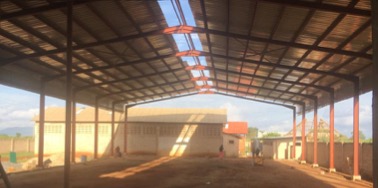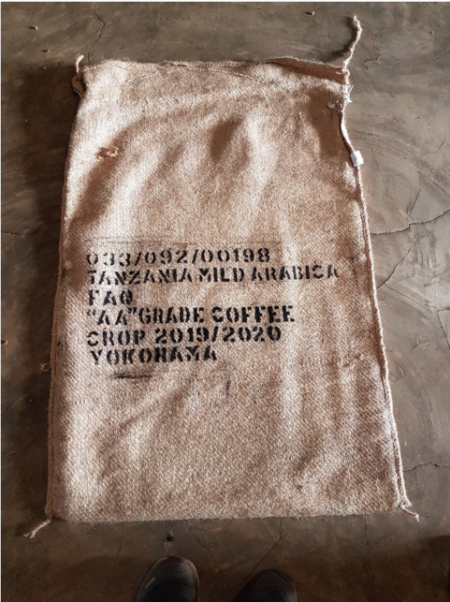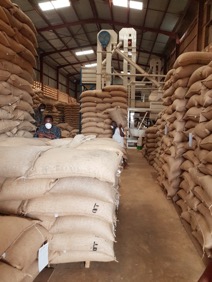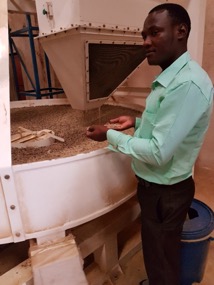Country: Tanzania
Sector: Coffee
Investment: Construction of additional warehouse, acquisition of additional truck
Total estimated capital expenditure: USD 320.000
Investment type: 4-year and 4-month subordinated loan, 1-year and 4-month grace
Amount invested by Kampani: USD 320.000
Co-investor: Not applicable
In portfolio since: November 2019
Deal sourced by: Alterfin
Add-on investment in December 2021:
– Construction of a new warehouse in Mbinga and acquisition of a mechanical coffee drying
– 6-year and 3-month subordinated loan, 2-year and 3-month grace
– Loan amount: USD 622.000
The business
Mambo Coffee Company Ltd is a sustainable green coffee exporter created in 2011 with its main office and factory based in Morogoro. It is founded, wholly owned and managed by local entrepreneurs.
Mambo Coffee sources its coffee from four main areas:
- Kilimanjaro/Arusha area
- the mountains east of Tanga in the north east of the country
- in the vicinity of Lake Victoria in the north west of the country
- and in the south of the country, west of Songea
Mambo Coffee does not itself hull coffee. The hulling is done by different third parties near the production zones. After hulling, all of the volume is transported to Morogoro and processed at the Mambo Coffee factory which has four components:
- Oscillating machine, which removes wires and husks and dust
- Grade separator (gravity table)
- Electronic colour sorter
- Bulking
Mambo Coffee excels at these parts of the value chain. The state-of-the-art factory, the hand sorting, the certifications, and Mambo Coffee’s ability to create the blend the client requires, allow Mambo Coffee to sell at commercially attractive prices.
The investment
In November 2019 Kampani completed the transaction. At the time, Mambo Coffee was hitting the limits of what it could do profitably with its existing transport and warehouse capacity, while the processing plant had excess capacity. Mambo Coffee now continues to have access to sufficient opex financing, and both the supply and the demand for the coffee is there. The bottlenecks were warehouse and transport capacity. This is what Kampani has agreed to finance.

Key features of the contract terms are:
- Subordinated loan (no collateral)
- 1 year and 4 month grace period
- USD denominated
- 4 year and 4 month loan duration (the shortest for Kampani thus far)
- Board representation and standard covenants
In December 2021, Kampani provided an additional investment to finance a new warehouse in the Mbinga region with mechanical coffee drying. The warehouse investment is expected to help Mambo Coffee to have a coffee collection centre that has reasonable storage and handling cost as well as one that attracts cooperatives to deliver coffee for the good quality service offering. The mechanical coffee dryer will shorten the drying to 1 day instead of 14 -21 days of drying in the sun. This would allow Mambo to respond more quickly to the demands of the buyers.
Key features of the contract terms are:
- Subordinated loan (no collateral)
- 2 year and 3 month grace period
- USD denominated
- 6 year and 3 month loan duration
- Standard covenants
The social impact
Mambo’s concept since inception has been to work with producers of Fairtrade and Organic coffee. This has proved a core strength as Mambo is able to source premium coffee which fetches higher prices.

Although Mambo Coffee is a trader (it does not own any coffee farm), its model is of interest to Kampani in the sense that it already has long term relationships with the producer cooperatives it works with. For the first time Kampani’s investment benefits coffee producers who do not have their own export capacity. The total number of producers comes to 15,000 farmers, two thirds of them women.
Every year Mambo Coffee signs contracts with the producer cooperatives based on the forecast production for the season. Contracts are signed based on targeted sales by Mambo Coffee to international buyers.
The farmers get support from Mambo Coffee staff in the form of distribution of free seedlings through their cooperatives, agronomical support to help with spraying and pruning schedules, certification support, and other general training in partnership with other stakeholders (mostly NGOs and the government).
The Mambo Coffee website confirms that:
“Our business strategy is to create win-win business opportunities for coffee growers and buyers in order to build relationships of mutual profitability and interest. We serve coffee buyers by delivering their desired quality of coffee with the highest level of customer service.”
“We serve farmers by promoting socio-economic development and pioneering an environmental agenda at origin. Mambo Coffee tells the story of the farmers behind the coffee. This synergy, we feel, creates sustainable long-term business relationships between growers and consumers.”
Mambo Coffee and Kampani have developed a Social Business Charter which seeks to codify the current practice. Mambo Coffee has made a number of commitments that benefit the smallholder farmers, and it will report on the social indicators.


